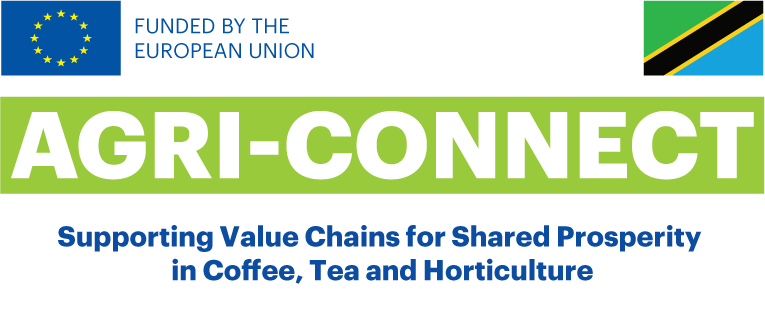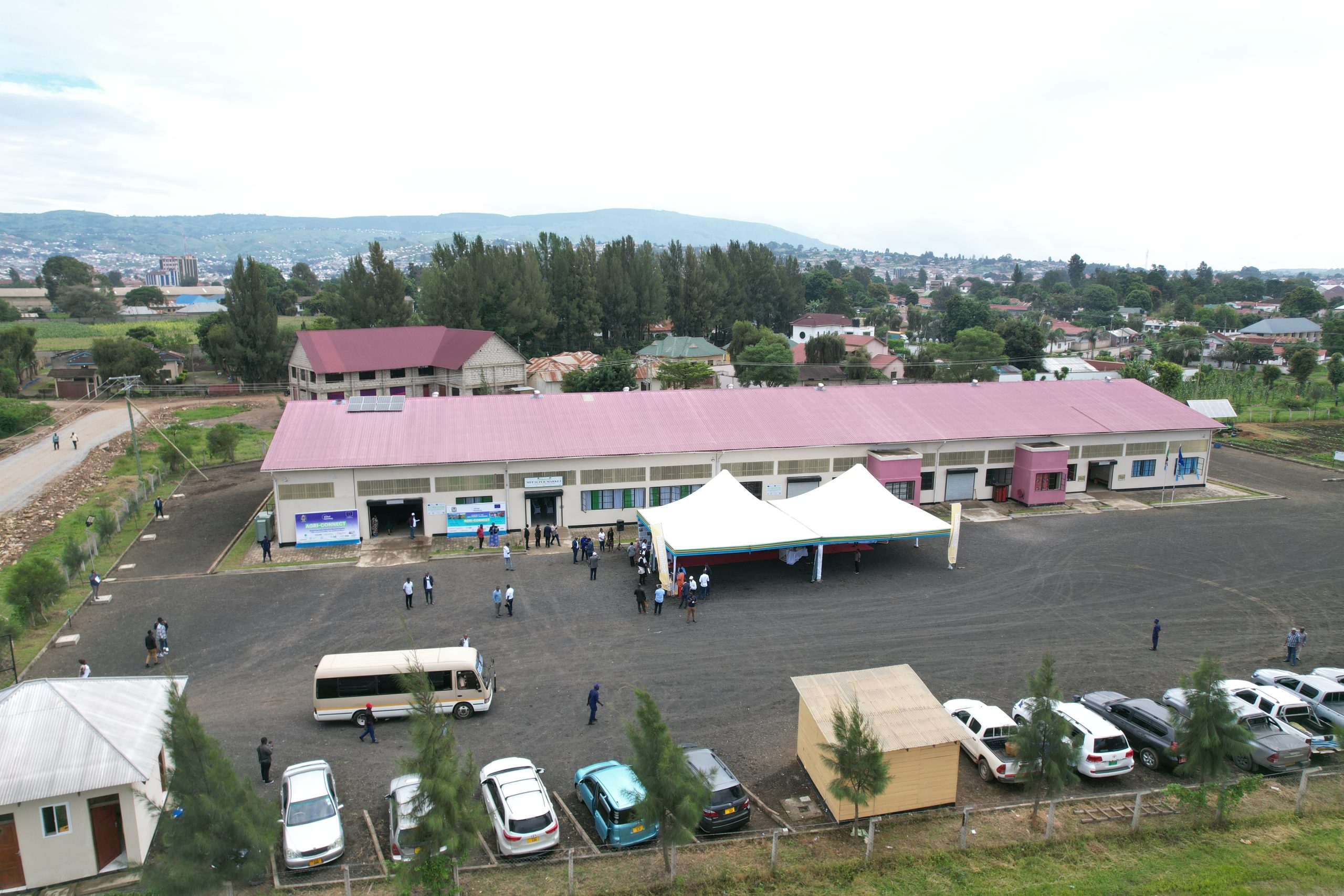
How Europe Backed Tanzania’s Farmers, and Proved a Point
Agriculture is the backbone of Tanzania’s economy, employing over 65% of the population and contributing nearly 30% to the GDP. Yet, for decades, smallholder farmers—the driving force of the sector—have faced immense challenges. In her latest op-ed, EU Ambassador Christine Grau highlights how AGRICONNECT, the EU’s largest support programme for agriculture in Tanzania, has made a difference.
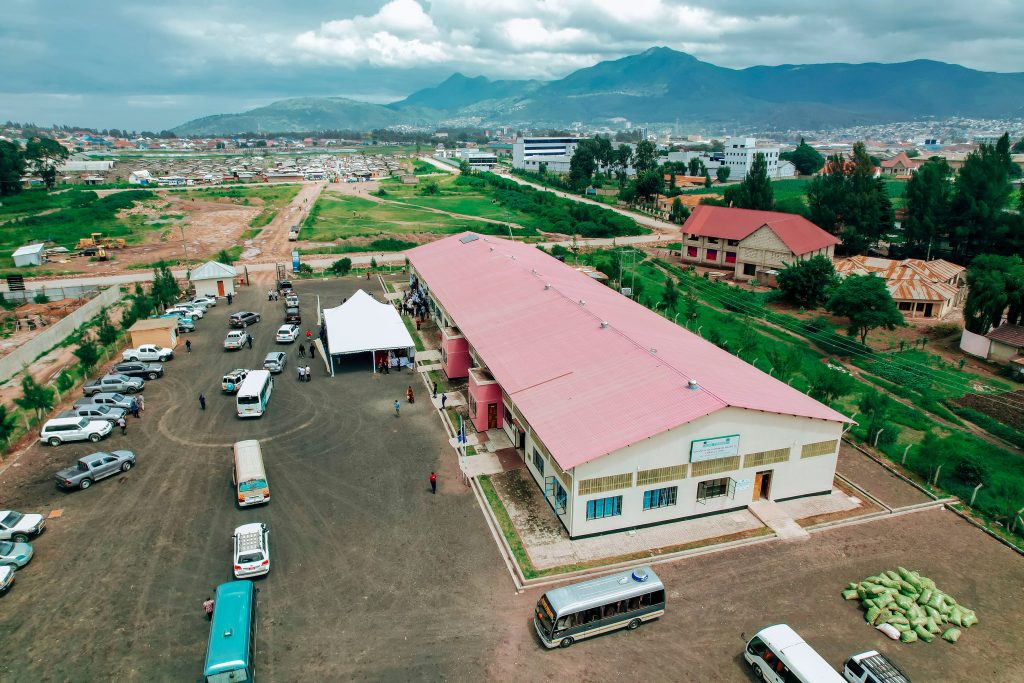
By Christine Grau, European Union Ambassador to Tanzania and the East African Community
The Mbeya Food Park was a fitting place to mark the closure of AGRI-CONNECT, the European Union’s most ambitious agricultural programme in the Southern Highlands and Zanzibar. This state-of-the-art facility has significantly boosted agro-processing and market access for small businesses. Before its establishment, many small-scale producers and agripreneurs faced challenges in reaching markets, improving product quality, and securing financial support. Today, they stand as proof of what opportunity, investment, and the right support can achieve.
Agriculture is the backbone of Tanzania’s economy, employing over 65% of the population and contributing nearly 30% to the GDP. Yet, for decades, smallholder farmers—the heart of the sector—have faced immense challenges. Climate change, limited access to finance, poor infrastructure, and weak market linkages have stunted their potential.
This is why the European Union made agriculture a priority, investing TZS 270 billion (€100 million) through AGRI-CONNECT to strengthen agricultural value chains, improve rural roads, and enhance nutrition.
AGRI-CONNECT was not only a financial commitment, but also an investment in people. A great example is Bertha Mwaipopo’s journey with her company, Libeta Products, which illustrates the programme’s impact.
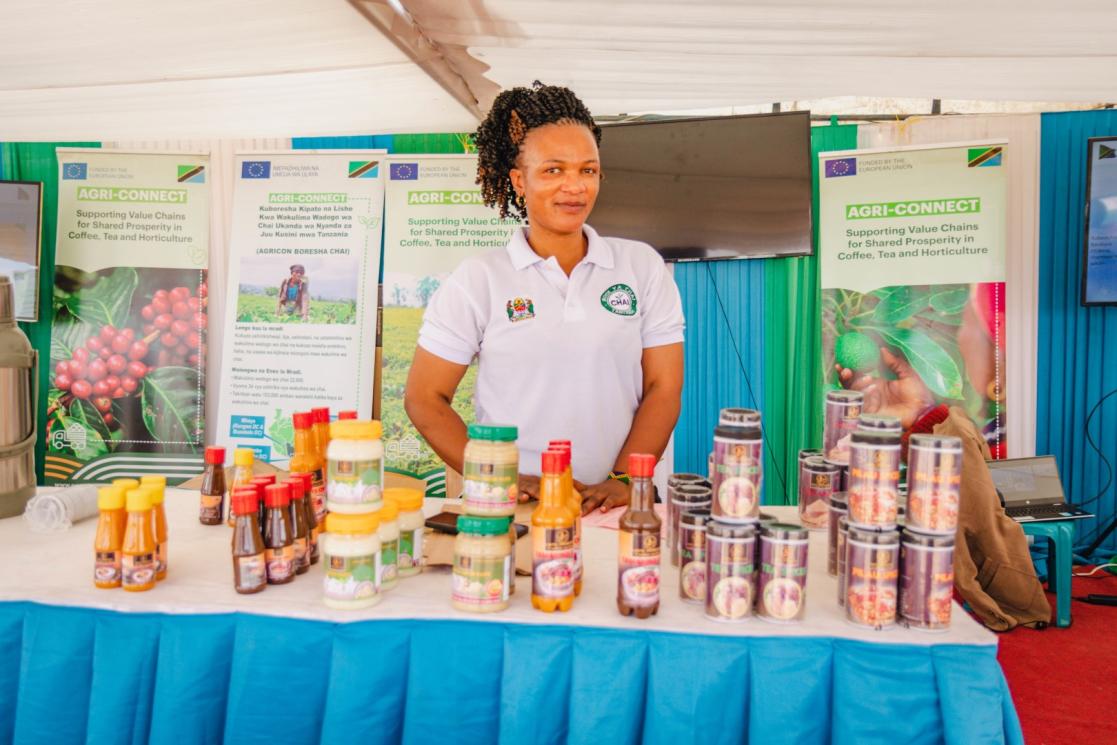
When she started her small spice processing business, she worked out of the kitchen of her one-bedroom house, with little knowledge of pricing or branding. Transportation was a nightmare, and storage was a daily struggle.
A few years later, she has expanded her operations, selling her products across five regions and employing 15 women. Training, mentorship, and access to modern processing facilities at the Mbeya Food Park—resources made possible by AGRI-CONNECT—gave her business the boost it needed to thrive.
The park itself, located at the Old Mbeya Airport Road in the city center, is one of the programme’s lasting legacies. It provides small-scale entrepreneurs with access to high-standard machinery, storage facilities, and training. It has changed the way food is processed, especially in the Southern Highlands, enabling businesses to scale up and compete in larger and more diversified markets.
But the programme’s footprint stretches far beyond agribusiness.
On my way to Mbeya, from Dodoma, I made a stop at Iringa’s main market where I saw a variety of produce—fruits, spices, and grains—that could benefit from stronger value chains, such as improved processing and packaging. Like Mbeya, Iringa has been a key beneficiary of the programme, with farmers gaining access to better roads, processing units, and business support.
Later that day, after the closure event, we travelled 30 kilometres through the rolling hills of Rungwe District. It was the kind of scenery that reminds you why agriculture matters—not just as an economic sector, but as a fundamental part of life. And, it was a strong reminder and eye-opener on the diversity of the Tanzanian landscape and conditions for agriculture.
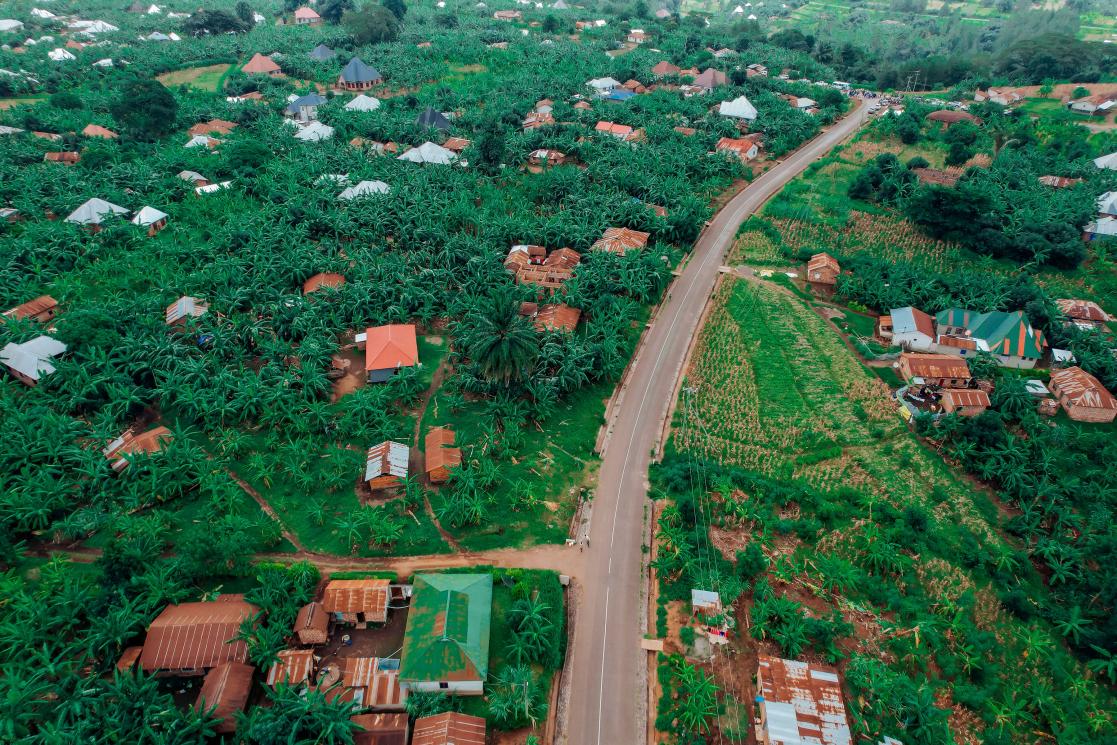
We inaugurated a newly upgraded road: Masebe Dispensary – Mpuguso TTC – Kibaoni, a 5-kilometer stretch that is part of the more than 160 kilometers of tarmac rural roads improved under AGRI-CONNECT. These roads are the unseen heroes of agricultural growth. Without them, even the best harvests can rot before reaching the market. Farmers in the Southern Highlands—more than 177,000 of them—now have a smoother, safer, and faster way to transport their produce, reducing losses and increasing their earnings. And the communities along these roads are also strongly benefitting from the transport upgrade.
These numbers tell only part of the story.
More than 516,000 jobs and self-employment opportunities have been created with support from AGRI-CONNECT. Infrastructure projects—166 of them—have been completed. Eighty-five new processing units have been established, and nutrition campaigns have reached 63% of the national population.
But statistics, however impressive, do not capture the full picture. The real impact is in the livelihoods that have improved, the businesses that have flourished, and the communities that are now better connected to opportunities and healthier diets.
The programme may have ended, but the European Union’s support for Tanzania’s agricultural sector is far from over. Through the Global Gateway strategy, we remain committed to strengthening value chains, improving logistics, and expanding opportunities for smallholder farmers. AGRI-CONNECT was never just a standalone project; it was a step in a longer journey toward a more resilient, competitive, and sustainable agricultural sector.
Driving back from Rungwe, the significance of what had been achieved felt clear. The roads we travelled, the businesses we visited, the farmers we met—all were reminders that when investment is done right, it does not just build infrastructure or boost production. It leaves a legacy of a more connected agricultural sector with better possibilities for farmers in tea, coffee, and horticulture value chains. The true measure of AGRI-CONNECT’s success will not be found in a report or a spreadsheet but in the lives it has changed and the futures it has shaped.
This article was originally published on Daily News on 24 March 2025.
